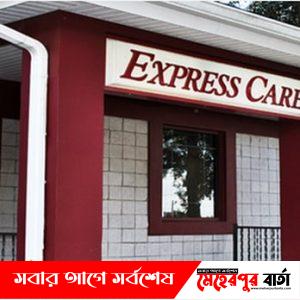When a health issue arises, deciding where to seek medical attention can be crucial for both your well-being and your wallet. Two common options are Express Care Ocala and the hospital’s Emergency Department (UGD). While both provide medical care, they cater to different levels of urgency and types of conditions. Understanding the distinctions between the two will help you make an informed decision when faced with a medical need. Choosing the right facility can lead to faster, more appropriate care and potentially lower costs.
Express Care Ocala is designed to handle non-life-threatening illnesses and injuries that still require prompt attention. These facilities bridge the gap between your primary care physician and the emergency room. Common conditions treated at Express Care include colds and flu, minor cuts and burns, sprains and strains, infections (like strep throat or urinary tract infections), and diagnostic services such as X-rays and lab tests for non-critical issues. The aim is to provide timely care for conditions that cannot wait for a regular doctor’s appointment but do not pose an immediate threat to life or limb.
When Express Care Ocala is the Appropriate Choice
Opting for Express Care Ocala is https://www.expresscareofocala.com/ generally suitable when you experience a medical issue that needs attention within 24-48 hours but is not severe enough to warrant an emergency room visit. If you have symptoms like a persistent cough, a low-grade fever, a minor injury from a fall, or need vaccinations or physicals, Express Care can often provide the necessary care more quickly and at a lower cost than an emergency department. Their extended hours, including evenings and weekends, also offer greater flexibility compared to traditional doctor’s offices.
Furthermore, Express Care centers are often equipped to handle certain diagnostic procedures, allowing for quicker assessment of your condition. This can be particularly beneficial for conditions like suspected fractures (via X-ray) or infections (via lab tests). By choosing Express Care for these types of issues, you help alleviate the burden on overcrowded emergency rooms, ensuring that those with true medical emergencies receive immediate attention.
Understanding When the Emergency Department (UGD) is Necessary
The Emergency Department (UGD) is the appropriate place to seek medical attention for severe and life-threatening conditions. These are situations where a delay in treatment could result in serious complications, permanent disability, or even death. Examples of conditions requiring immediate emergency care include chest pain, difficulty breathing, severe bleeding, loss of consciousness, sudden paralysis or weakness, major trauma (such as from a car accident), and signs of a stroke.
Emergency departments are equipped with specialized medical personnel and advanced equipment necessary to handle critical situations. They operate 24 hours a day, seven days a week, ensuring immediate access to life-saving interventions. While the cost of emergency room care is typically higher than that of Express Care, it is essential for situations where immediate and comprehensive medical attention is paramount. Recognizing the signs and symptoms that necessitate an emergency room visit can be life-saving.




